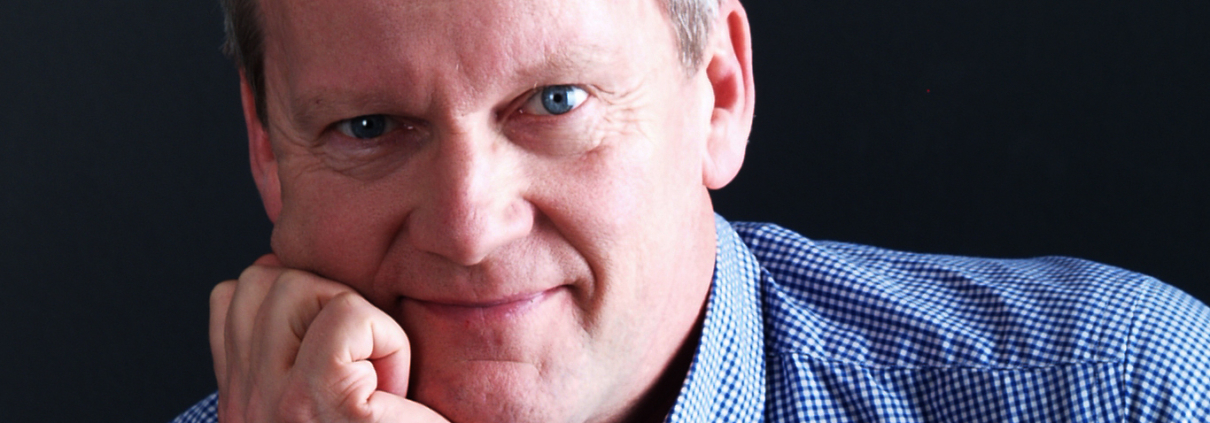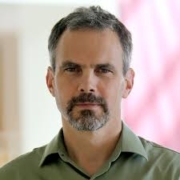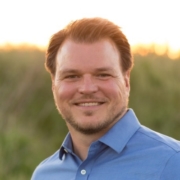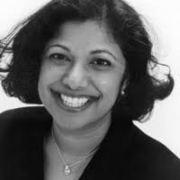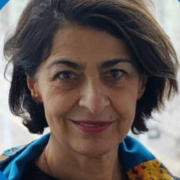What are the hard questions in education today?
My guest is Pasi Sahlberg. When he was teaching at the Harvard Graduate School of Education, he edited a book with his students on some of the biggest and hardest questions facing education today.
In our conversation, Pasi speaks about the class, the book, and the importance of writing op-eds. He even offers some advice for US Education Secretary Betsy DeVos.
Many listeners have probably heard of Pasi Sahlberg. Some might even consider him an educational change maker. I ask Pasi if he sees himself as a change maker. Stay tuned to hear his answer!
Pasi Sahlberg is a global educational advisor. His latest co-edited book is entitled Hard Questions on Global Educational Change: Policies, practices, and the future of education which was published by Teachers College Press earlier this year.
Citation: Sahlberg, Pasi, interview with Will Brehm, FreshEd, 82, podcast audio, June 17, 2017. https://www.freshedpodcast.com/pasisahlberg-2/
Transcript, Translation, Resources:
Will Brehm 2:03
Pasi Sahlberg, welcome to FreshEd.
Pasi Sahlberg 2:05
Thank you so much, Will.
Will Brehm 2:06
You have a new book on global educational change that you’ve cowritten with some of your students at Harvard. What is global educational change, to begin with?
Pasi Sahlberg 2:18
Well, first of all, we wanted to have a collection of questions and issues in education, educational development that are relevant and asked around the world. We had a long list of candidates for that, and we narrowed it down to about seven or eight big things. Something we wanted to have a conversation that could take place anywhere around the world. Questions and issues that are not simply things like: “Which year was John Dewey born?” or something like that. Something that takes a little bit more than just opening a book and looking at the answer to that. The issues that are relevant to educational conversation almost anywhere in the world.
Will Brehm 3:10
And so, what are some of these big questions that you settled on?
Pasi Sahlberg 3:14
Well, obviously one of those things in education in most countries, policymakers and practitioners and researchers are asking that is a good example of a hard question in education is, for example, the issue of privatization. Whether handing out public institutions, public schools to private providers is a good idea. Whether it’s something that many people say enhances quality and access to education; whether this is really happening. This is probably the best example of a very hard question in educational improvement and change. The other questions are obviously the classical question of the role of standardized testing: Is this really something that improves education if we test kids more? Another good, hard question is the teacher union question that people are debating around the world. Some people say that the obstacle for all real change are the other unions and other people say that when teachers have right to unionize or belong to an association, that improves education. So that type of things, we spend quite a bit of time actually thinking about. Whether the question is a hard question in educational change or not, and that’s where we ended up.
Will Brehm 4:43
So, what were some of the requirements to be considered a “hard question” rather than just an easy question?
Pasi Sahlberg 4:51
Well, this is a hard question, Will, actually. But I think if you look at the educational conversation in different parts of the world, obviously there are questions that are not really hard questions. Like, many people are now interested in higher performing education systems like Finland or Singapore, Canada. And some of those not-so-hard questions, obviously, are things like how Finland is treating its teachers, or what the curriculum looks like in Singapore, or such things. You can easily just go to the literature and find the answer to these questions. The hard questions, we defined to be something that you can easily find different sides of the question and come up to different answers as well. For example, let’s take the private school question. So, you may ask, “Are the private schools a good way to enhance the quality and performance of education systems?” This is something that, if you just simply take the ideological side you can say, “No, I don’t like private schools. I think the public system is a good.” And you can find research on that. You can say that this is the result. Then some other people may say, “Well, look at systems like the Netherlands, for example, where most of the schools are not public schools, they’re actually private schools, and the system is doing very well.” So, what’s going on in the Netherlands? So, we had to dig into the kind of definitions of what we actually talking about? And this is exactly what we wanted to do with these so-called “hard questions”. And that’s what we wanted to teach our students: “Hey, wait a minute. Something that may look obvious in the beginning may look much more complicated and complex when you dig into the literature and research. And that we have to be much more careful in our kind of immediate reactions to these questions.” Somebody might have, for example, the union question – something that is based on her or his experience – by saying that “I belong to the union. It was horrible.” And what we try to do is to say that you cannot judge the whole question by your own experience that you have to look at different types of unions again. This teacher union question is interesting because if you go to Canada, for example, and you look at the Canadian provinces, how they offer professional association services to their teachers. Like in Alberta, for example, Alberta Teachers Association. That is a gold standard union if you wish, doing very good jobs, and that’s why you cannot really immediately say that that type of association union is bad. We have to really look at what do we mean by these things. And finally, Will, what we realized – what we tried to kind of learn – is that perhaps the better outcome of answering these hard questions is not the answer itself, whether it’s “yes” or “no”, but it’s a better understanding of the question itself. And new questions. If you read the book, you will see that many of the students, rather than saying that this is the answer to this question is that if you think about more of this particular question, you get new questions, new issues that you really have to answer before you can understand what it is. So, to ask the hard question is really something that is, as you move along the road in answering the question, is generating new ones. New, interesting things that you really have to understand and research and answer before you can say anything about the initial question.
Will Brehm 8:53
So, you weren’t looking for answers to some of these hard questions, but rather an in-depth engagement with the hard question itself to uncover more of the nuance, and maybe potentially ask some more nuanced questions. So, what would be some of these nuanced questions that you would ask for, say, privatization? Rather than just, “Are private schools good?” What would be the nuanced question that comes out of an in-depth engagement with the debates?
Pasi Sahlberg 9:25
Well, again, a great question, Will. I think what we can learn from the comparative education and the international perspective things is helping us to answer this question that you were asking. Because, first of all, the term “private” in education means so many different things in different countries. My students – that was my experience – typically always thought about private as being, for example, a private school. Being a for-profit private school that is scheming funds and profits from parents or students. And of course, the private can mean much more than that. Again, the Netherlands is a good example of this. In Finland, where I’m from, if you look at the statistics, we have about 10% of our school children attending so-called private schools. But they are not really private schools; they are non-publicly governed schools that are fully funded by private funds. So, if you begin to understand, there are different forms of private engagement in many countries. Being a private school means that you get the funding from the public money, but you can govern the school by yourself through your own governing body, whatever it is. And that’s quite fine; I have no difficulty in my country, for example, to say that these schools are doing pretty good job, and they have their own mission, why they want to do that. And simply by saying that, as a Finn, for example saying that private schools should be abolished and everybody should be governed in the same way, I think it’s not very smart thing to do. And that’s exactly what actually these hard questions are all about. Then on the other side, you look at kind of a privatization of public education that you have covered in this series a lot. I think there are several questions there, for example allowing for-profit, foreign companies to enter into education markets in Africa simply by promising too much and doing this thing as a business, for profit for the owners. That’s something that’s completely different form of privatization and private education. But, you know, my experience is that most people, particularly the students, that they don’t have this type of thinking. They don’t have this information and background to have a good conversation and then come into the conclusion of what to do. So that’s kind of an example of this privatization that has been topic of this podcast series as well. It is an excellent example of this.
Will Brehm 12:28
It seems like, in a sense, there are global questions – global hard questions – but they’re certainly not global answers to these questions.
Pasi Sahlberg 12:38
That’s very good. I hope that we would have had this wisdom for our book as well. It’s very well said, Will.
Will Brehm 12:45
So, I would like to turn to one of the ideas that you talk about in the book is about educational changemakers – the people who have to grapple with some of these hard questions. So, what sort of characteristics do you find in educational changemakers? Who are these people?
Pasi Sahlberg 13:03
Yes, we used this “changemaker” word. When I entered Harvard, one thing I realized there that many of those young people who came to study there, one way or the other they say that, “I’m here to make a difference in the world; I want to make a world a better place through education.” And when I asked them, “If you want to be a changemaker?”, most of my students said, “This is really what I want to do”. And that’s why we kind of coined this term there to say that if you want to change the world, you have to be a change maker and you have to understand what you do. Ashoka, that is a movement for social entrepreneurs, uses this “changemaker” term a lot. And they include things like, before you can really be successful in making a change and turning things around, you have to have certain qualities. You have to develop some aspects of your professional and personal lives. Some of them are like empathy. And I think the empathy is a key question also for being successful and good in answering these hard questions in global education. In other words, understand that the situations are different in different parts of the world, and that people are looking at education and the world through a very different lenses in Finland, in Canada and Singapore, in Africa and other places. So that people need to have that one. The other one is, of course, leadership. That you need to understand what it is to be a leader in the field of education. And that’s where the things like communication, writing powerfully, short pieces like we have in this book, or doing blogs that you do, or writing op eds actively in your own community newspaper or national newspaper, those other things. And then, of course, successful changemaker has to know how to collaborate. You have to be able to work together and collaborate with people. Also, with different and opposing views and opinions in education. And this is exactly that we try to kind of offer to these new changemakers – a mindset that they would understand, rather than you know being a divider that we see, for example, in the United States, the situation is rather horrible in the sense that this whole education landscape there is divided by a huge canyon of opinions in a way that you either belong to one camp or the other, and there’s a very little communication and collaboration between those two things. And whenever I look at this widening canyon in America, I say that finding a sustainable solution to improve education for children looks almost impossible. And you know, being a changemaker, you have to be able to build bridges rather than build walls. I think this is the saying what the Americans are saying right now. That’s why I think the changemaker is somebody who is trying to move between these different opinions and fields in education. And by understanding better these hard questions, also be better in offering some solutions and ways forward.
Will Brehm 16:51
So, keeping with the America theme, what sort of advice would you give Betsy DeVos, the Education Secretary, in her effort in answering some of these hard questions?
Pasi Sahlberg 17:06
Well, you know, if I had the luxury to sit down with her as I did with Arne Duncan before her, probably one of the first things I would try to do is to give her this book and say, “Please try to enhance the understanding that there are very different ways to look at some of these core questions and things in America if you move around the world”, and there are. I would also, try to, you know, speak with her about the opportunity to learn from one another, from other countries and other systems. I’m quite sure that she doesn’t since she’s not an educator, that she doesn’t know much about what’s going on in other countries, and she doesn’t know that some of the potential solutions and ways forward to improve American education actually exist elsewhere. I think it’s very hard to be successful in that type of job if you think that most of the solutions come through some type of ideological framework or world. I’m not sure whether she really knows that education is a kind of professional field where we have a solid research base and experience and literature that we can refer to. She might think that education is like politics. It’s ideology. That we can have opinions and then do what we think is the best thing to do. So, I think that good way forward with leaders like her and others would be to help them to understand that, “Listen. Go to Canada, or come to Europe, or go to Japan, and see yourself. See what people are doing. And then, have the good people around you and say that so what should we make out of this?” I would probably if I had a little bit more time with her rather than just kind of the elevated type of speech, I would really tell the story that I often tell that I think I’ve told Arne Duncan and others. That, if you come to Finland, or if you go to Japan, and you really spend time there in schools, and you dig deeper in this educational change thing, and ask simply as a question that “What is the source of your innovation? What is the source of your teaching methods or leadership ideas in your schools?” Surprisingly, you would hear, more often than not, teachers and principals saying that these are from the United States of America. What we do in Finnish schools or Japanese schools are often designed earlier by the American researchers and educators. And you know if she would really understand this, say that, “Okay, wait a minute, so are you telling me that you are doing these things in Finland or Japan, and you have these high scores in these international tests – much better than we do – and we are not doing those things that you do? There’s something wrong here.” And I’m sure that anybody who would realize this, that actually the American ideas have made Finland and Japan and Singapore and Canada, and the Netherlands do that well. And we are not doing that in back home. So okay, let’s think about this. And this would be a revolution in a place like America. Rather than what John Merrow is calling addiction to reform, that I think America is addicted education reform, would be to look back and say, “Okay, let’s try to do better what we have done here during the last 50, 100 years. Let’s try to do a little bit more of those things that everybody else who is doing much better we do are doing in their education reform, education policy, and improve our schools.” You know, if I would succeed, at least 10% or 20% with this type of effort, I would say that America would be in a much better track. And one of the first things that she would probably realize is that her kind of obsession to privatize American school system by insisting to hand over public schools to charters and other arrangements, would very quickly be realized as a wrong way in America. That would be a good turn.
Will Brehm 21:43
So, I want to just ask a little bit about, you brought up earlier that op-ed writing was a very important element for educational changemakers, and in the book you were really telling students to go out and actually write op-eds. And I think it was even part of the grading requirements or it was a requirement inside the syllabus. Can you just tell me why op-ed writing is so important in your opinion?
Pasi Sahlberg 22:13
Yes, absolutely. And you’re right that in this course, that was actually called Hard Questions in Global Educational Change, the first exercise was to write an op-ed. And it’s important because none of these students – and they are experienced, they’re all masters students and they had experience in working life – none of them had ever written an op-ed. Very few of them actually knew anything about what the op-ed is. That’s how we started and that’s how we ended the course. And the grading was, indeed, based on an op-ed. We said that if you get your op-ed – that is typically 5-600-word opinion-based, professional text – published in a newspaper, for example. That if you get your thing published, you get automatically a grade A, if you’re interested in grades. And that amazingly motivated many students to start to write. But I think if you really want to be a changemaker today in education, in other words, if you want to have a voice in a conversation, if you want to see an impact of your opinions and knowledge within your profession, writing journal articles and books is too slow. Simply, people don’t have time to do that. And most educators, most of those people who have power board members and decision makers, they don’t time to read books. They don’t even read the journal or magazine articles anymore. What they read are blogs and op eds. something that you can while you have your breakfast. You have a newspaper or your iPad or something, and you read kind of a strong, convincing piece on something that convinces you to think about that further, and probably then go to the book and read the book. So, we decided to take this as a kind of a condition to be a changemaker in education. I did this in each of my courses at Harvard because of this realization that amazingly few students actually knew how to write. And most of the first op eds that they wrote were horrible. Students normally included, like five different issues in a 500-word piece. They included references that indicates that they have kind of a college experience – that whatever you say you always have to have a reference. And so, we worked really hard to make them understand what makes a powerful little piece called an op-ed or blog. And I do believe that in education, you can have much more influence by writing powerful, short stories and pieces like this than writing books. We need to write books and journal articles as well. Actually I have somebody from the Washington Post as a guest in our course: Valerie Strauss, who is having a very well-known education blog and site online thing and then Valerie, in the middle of her conversation with the students says that I wrote (meaning me), wrote her one little story from a little essay from Finland about the Finnish teachers, what happened if they taught in US schools. And she said, without me knowing, that this was read like one and a half million times. And this was two years ago. And the students were like, “One and a half million times? A little piece like that? What type of book would be read one and a half a million times?” And just think about the influence that that type of word has when people read it all around the world. It’s a kind of good example that if you want to make your point, and if you want to make your point read very fast and quickly around the world, you know blog or op-ed or short essay or something like you do here – this type of podcast – is exactly what people need to do. But not only, you know. Sometimes people misunderstand, say that, “So you’re not writing books or research articles anymore?” Of course, I am, but I do not believe, and I think that my students should not believe that by writing a great book they will change the world. They will change it a little bit, but it’s often too late. If you want to address these timely hard questions, you have to use the tools that we have right now.
Will Brehm 27:08
So how many of your students actually were able to get an op-ed published?
Pasi Sahlberg 27:13
In all of my courses, in this particular course, probably about one third in different media. Not in places like The New York Times or Washington Post. I think there are couple of students whose pieces were published in The Washington Post. One student got a very nice story out in The Globe and Mail in Canada. Many of them got their things published in their own countries; they came around the world. But I think that the best outcome really of this type of method was that so many of these students when they were leaving the course, they said that “I came to this course with the feeling that I really don’t have a voice. I have a lot of opinions and I think I know quite a bit about education, but nobody’s interested in what I know. And now understanding that by writing this little piece on somebody else’s website, or published somewhere else, or even kind of a letter to the editor, you know I get a feedback and people kind of appraise my views and my opinion. I learned in this course that I have a voice, that I have an opinion. People want to listen to what I have to say.” And this is a huge outcome, kind of a learning experience that you have. If you can convince your young educators that my voice matters and people want to hear what I think.
Will Brehm 28:40
A lot of people that are listening to this probably know your name and would consider you to be an educational changemaker. You are very active on Twitter and you are always presenting at different conferences, and you write op eds for very well-known publications that get over a million reads. So, I wanted to ask you, do you consider yourself an educational changemaker?
Pasi Sahlberg 29:03
Yes, I do. It’s hard to know that, but I get a lot of mail also from private people, from students increasingly right now. I probably get about two or three emails every day from around the world. People say that they read my book, or they listened to your podcast where I’m speaking, or read one of those blogs, or op eds in the newspapers, and they say things like, “It really made me think about education more” and “I decided to take the Master’s degree on education because of that”, or something like that. And when I put together all these things that people tell me, obviously, I must admit that I have made a change in at least in many individuals. Then I’m an advisor to many governments, and people there value the insight that I bring. Not only myself, but together with other people. And they tell me that it’s been helpful for them to improve education or make changes that they need to make. So, I’m not insisting. I’m not the kind of a changemaker that some others would be to go around and insist that this is how the things should be. I’m more like what we do in this “Hard Questions” book that by asking hard questions and inviting people to spend more time thinking about some of these complicated issues in education and then be more like a coach and help guide people forward by meeting new people, bringing new educators and experts in, and helping people to change themselves. I think the changemaker that I would like to be is something that will help people to change themselves. That’s what I would like to be, rather than being a changemaker that will actually change people, period.
Will Brehm 31:12
Well, Pasi Sahlberg, thank you so much for joining FreshEd. Good luck being that changemaker as you travel the world, and I look forward to inviting you back on the show for your next book.
Pasi Sahlberg 31:21
Thank you, Will. And I would have one question for you: Do you consider yourself as a changemaker by doing this thing? And I think there’s only one answer – that you certainly are a change maker. Because I really enjoy this series that you do, and when I went to look at the list of your most recent podcasts, there are a lot of really hard questions in educational change that should have been part of the book as well. So, I salute you, and your work as a changemaker in this very needed time of educational change globally. So, thank you for what you do.
Will Brehm 32:02
Thank you. Thank you very much.
Hard questions on global educational change

